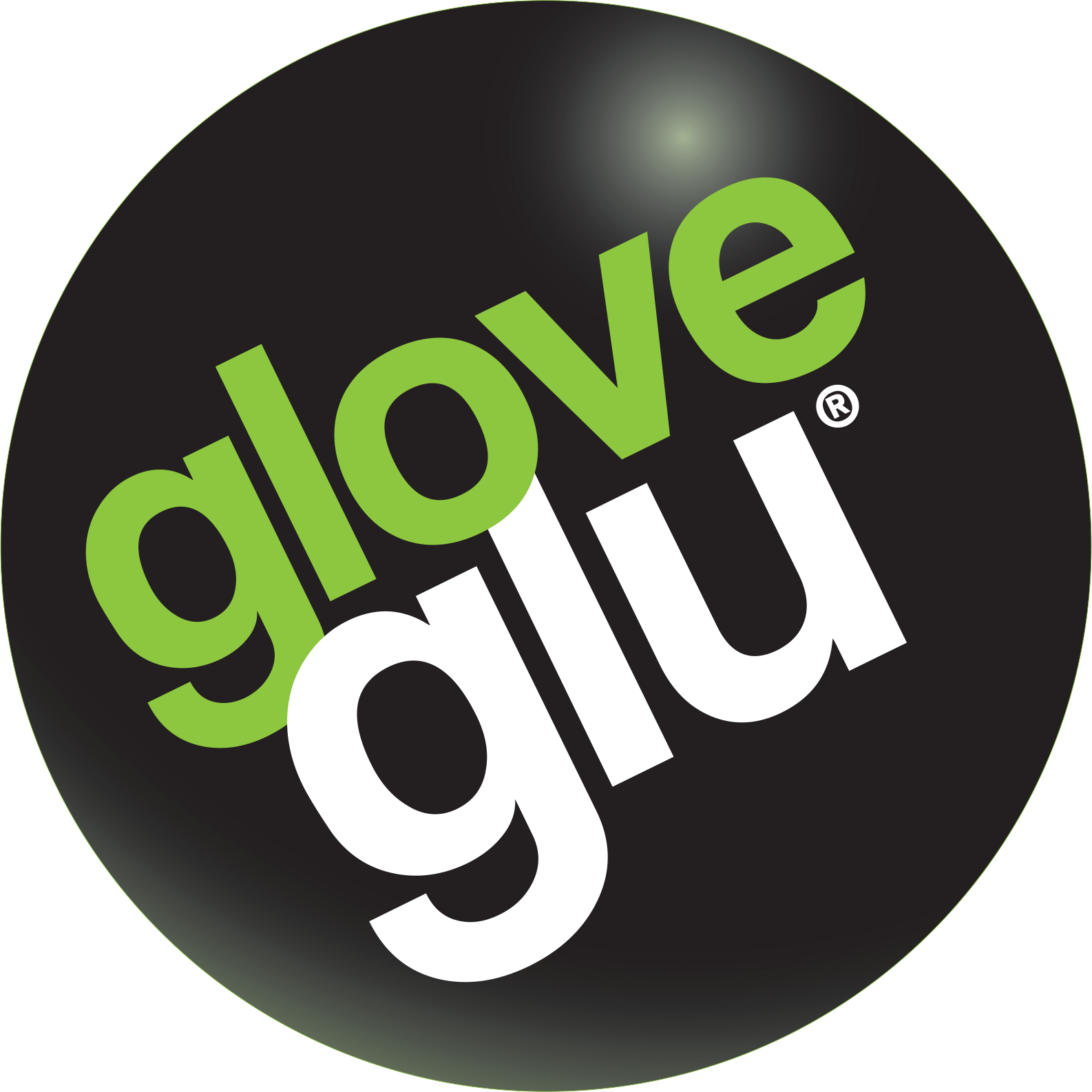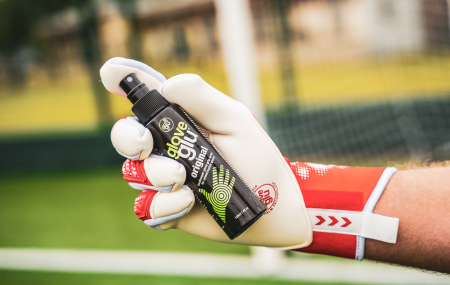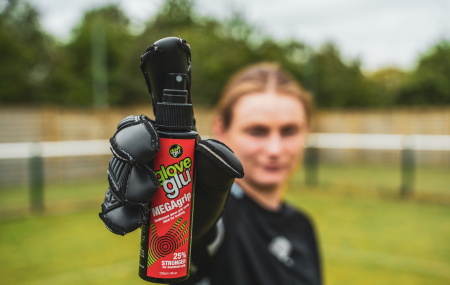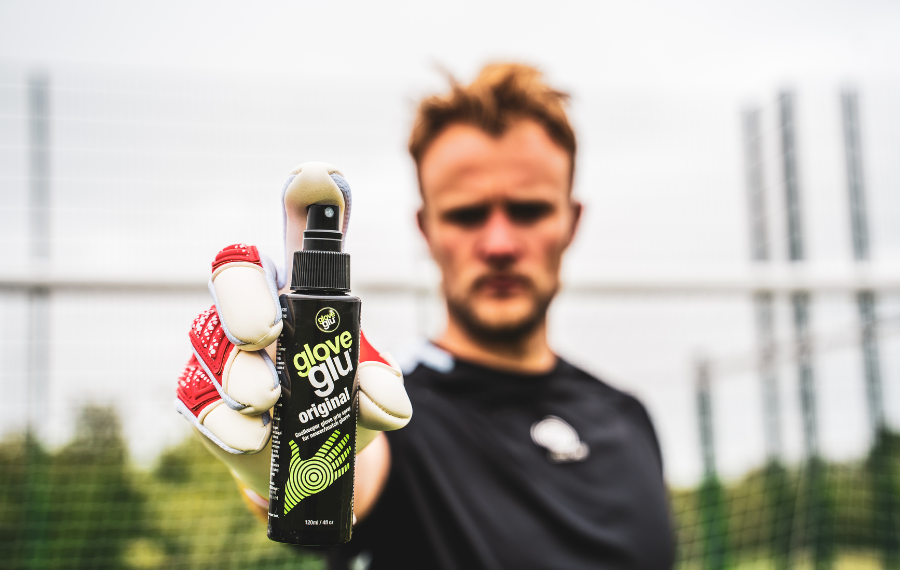
We spoke to gloveglu founder Paul Sherratt to discover how Shiptheory seamlessly enables gloveglu to ship to 44 countries worldwide.
Starting with B2B, now expanding operations into B2C, the impressive 75% B2B company, gloveglu, shares how the power of automation has allowed them to scale their business.
Suppose we didn't have Shiptheory in place. We would still have one person spending 4 hours each day, 28 hours a week, just processing and sorting orders manually.
Sports brand reports that 28 hours are saved each week by introducing automation from Shiptheory.
Shipping to 44 countries globally can be a headache, but with Shiptheory, Paul has no scaling worries.

Q: Give us some background on the gloveglu story, what you do, and where you started
After working in the sports industry for 30 years, the gloveglue story begins with me and one of my friends who thought...what if there was a spray which made goalkeeping gloves grippy? After six months of testing and ideas, we developed a revolutionary product, gloveglu, which we launched in 2012. We have now created a new category in goalkeeping and glove keeping.
Q: Who and where do you sell these products?
We are currently selling to 44 countries across the world. First of all, it was B2B sales that still represents around 75% of our business. That means we sell to our partners in whatever country, and they distribute it to sports shops and clubs there. However, B2C is growing rapidly, and we are seeing a massive rise after the social media growth and brand awareness.

Q: What were you doing before Shiptheory?
When we first started, we created all our labels around the kitchen table; we still had a very clunky back-end process to get the shipping information to DPD, DHL, or the multiple carriers we used. It was becoming a confusing and ominous task. If we didn't have Shiptheory in place. I imagine we would still have one person spending 4 hours each day, 28 hours a week, just processing and sorting orders manually.
Q: Where does Shiptheory fit into your workflow?
Shiptheory was a send from heaven, a real game changer for us, especially when the B2C was growing so rapidly. We would not have been able to scale so aggressively. Automation is a game-changer! We can now produce 1.2 million bottles a year just from our production facility in an 8-hour shift without worrying that we will be overwhelmed with labels. Shiptheory can automatically pull the information from our eCommerce platform, then send the tracking number to the customer and print the label without human intervention. This has saved 90% of the time we used to assign labels and parcels.

Q: What makes Shiptheory different from other solutions?
The biggest plus for us was not just the product it was the customer care we had creating the rules. Its refreshing to pick up the phone and have someone guide you through and onboard you within minutes, much quicker than I could have done on my own.
Q: What's the best part about Shiptheory?
It does what it says on the tin; if we can't find what it does, we can easily find it with the help of support. It doesn't matter if we send 10 orders a day or 510 orders a day. We know it's scaleable, and we know the system will be able to handle it. Above all we know how it works.

Q: When did you first get set up with Shiptheory?
We got set up around three years ago; it was a no-brainer to start using it immediately. We played around with the rules with our account manager, selecting weight and parcel size for specific carriers. At the time, we were also onboarding with Shipstation to compare solutions fairly. Shipstation didn't give us the same level of customer care Shiptheory did.
At the end of the day, sometimes you have a load of questions and want to speak to a human being; Shiptheory has always been able to answer the phone within a couple of minutes. The ongoing support we have received is just excellent.
Q: Would you recommend Shiptheory to other sports brands?
Yes I often recommend Shiptheory to other businesses in the industry, especially when they are looking to expand into new territories, such as from B2B to B2C or vice versa. A shipping solution like Shiptheory, who knows what they are talking about, is vital in expanding into new countries and markets. If I were going back now, there would have been a lot of shortcuts I could have taken with the solution partners and changing these along the way could have saved a lot of money. Still, if there's something I could recommend, it is to talk to businesses with their tech stack in place and see what they recommend.
 Paul Sherratt
Founder and CEO, Gloveglu
Paul Sherratt
Founder and CEO, Gloveglu